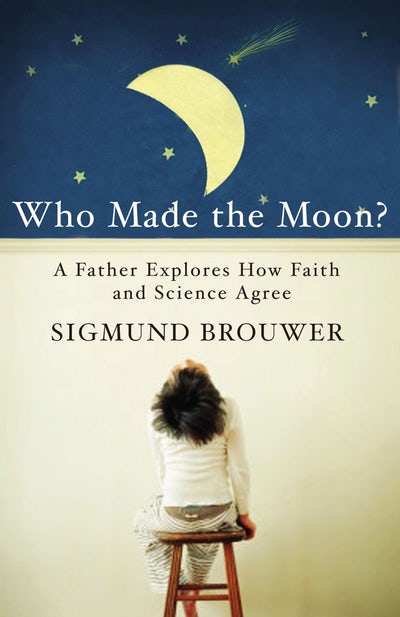
Cocoparisienne, Pixabay
Sigmund Brouwer is the father of two girls. He wants them to grow up curious, and to be confident to ask questions. He also hopes that they will learn to love God. Each section of this book begins with a short letter from Brouwer to his young daughters. The chapters that follow each letter are addressed to other parents (and would work equally well for adults who work with children and young people). His main concern is that the science-faith debate should be discussed without putting young people off God, or science.
This book speaks gently and wisely into the US conservative evangelical scene, where questions of creation and evolution can be incredibly polarising. I expect that many in the US have found it a helpful source of encouragement or challenge. Those who have experienced the slightly less tense UK version of this culture should find this book equally helpful. I would recommend it to someone who is confused or upset by the debates, and wants to learn enough to be able to serve their young people, finding a way to discern a path through the most important parts of the conversation in a way that is compatible with a strong Biblical faith.
The first section of the book focuses on the importance of encouraging children to ask questions, and affirming that nothing is off limits – “you can always ask daddy if something is bothering you”. The most important message of the book, for me, is that some issues are not part of the gospel. It’s ok for Christians to have different views on some things. In fact Brouwer doesn’t actually let the reader know all of his own views on mainstream science, but he leaves the door wide open in the direction of full compatibility between science and Christian faith should the reader wish to investigate. He highly recommends Francis Collins’s book ‘The Language of God’.
Brouwer is clearly more at home with the science of with physics and cosmology than biology. There is a whole section on the wonders of the universe, the evidence for the Big Bang, and the data that for some points most logically to a mind that intended the universe to be here. He looks squarely at the stories of conflict between science and faith, unpicking myth from reality.
Brouwer encourages the reader to enjoy the wonder of science, and to discern the difference between data and ideology. The monster in the closet is not the Big Bang or evolutionary biology, but a view that wrongly ties science to one particular worldview. The techniques of science can only tell us how things are, it cannot answer questions of meaning or purpose.
For Brouwer, both physics and biology are potentially more than compatible with the existence of God, you could even say they point to his existence. His points about evidence for design[1] may be emphasised more than some scientist may be comfortable with, but there’s plenty here to enjoy and explore.
This book should be an easy read for any tired parent. The chapters are short, the science is well-explained and the writing is conversational with plenty of stories scattered throughout the narrative. At the end is a list of recommended books (including some that Faraday regulars will recognise, including Francis Collins, Alister McGrath, Ed Larson), and for each chapter there is a starter for a conversation with children, and study questions and Bible passages for adults.
 Who Made the Moon is available from Thomas Nelson or UK-based online sellers (2008, 232 pages).
Who Made the Moon is available from Thomas Nelson or UK-based online sellers (2008, 232 pages).
[1] Note the lower case d: Brouwer is not advocating the particular views of the Intelligent Design movement here.




